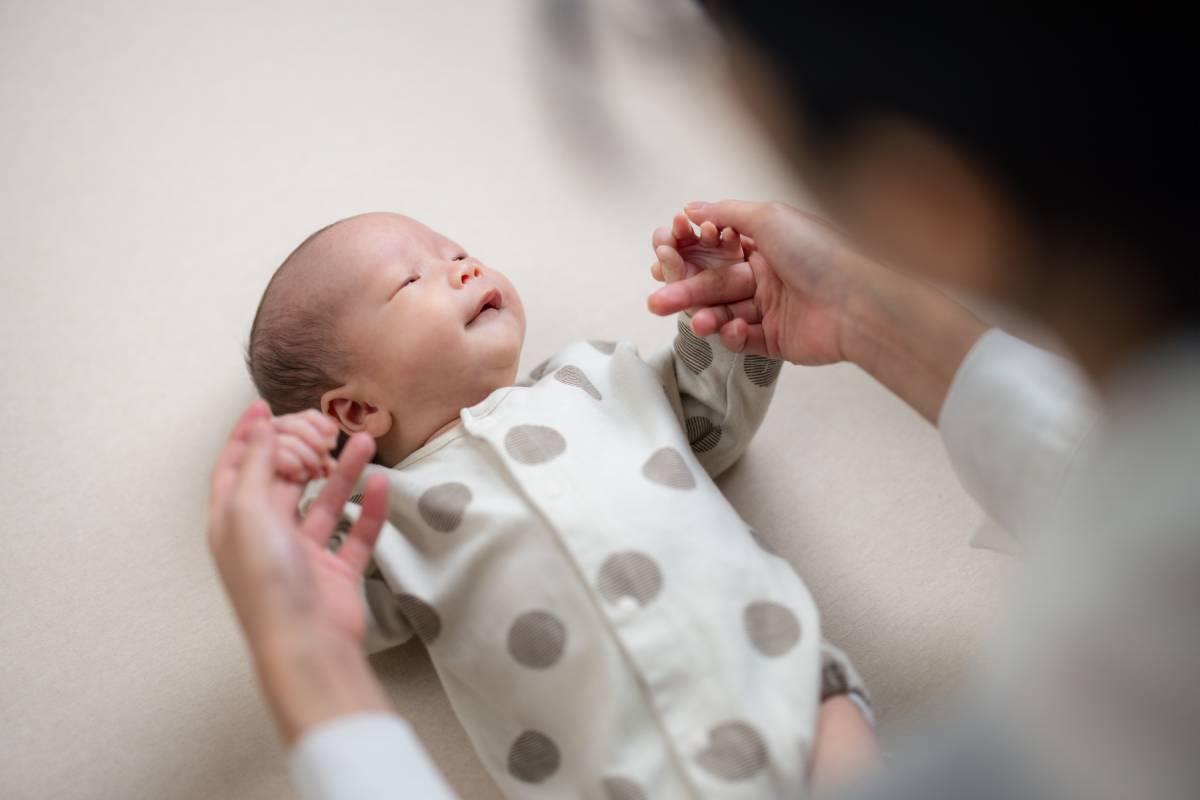What Is Cerebral Palsy?
Cerebral palsy (CP) is a lifelong condition caused by abnormal development or damage to the cerebral brain areas responsible for movement and coordination.
This damage can happen during pregnancy, labor, delivery, or shortly after birth. CP affects each child differently, with varying levels of movement difficulties and muscle control problems.
Causes of Cerebral Palsy in Newborns
The causes of cerebral palsy are varied, and often several factors contribute to the risk. Generally, these causes are divided into prenatal (before birth), perinatal (during birth), and postnatal (after birth) causes.
Prenatal Causes
Most cases of cerebral palsy start before birth. The developing cerebral brain is very sensitive during pregnancy, and certain issues can cause damage:
- Infections during pregnancy: If a mother contracts infections such as rubella, cytomegalovirus, toxoplasmosis, or herpes, these can harm the baby’s developing cerebral brain.
- Problems with the placenta: The placenta supplies oxygen and nutrients to the baby’s cerebral brain. If the placenta does not work well, the brain may receive less oxygen, leading to damage.
- Premature birth: Babies born early are at higher risk because their cerebral brains are less developed and more fragile.
- Multiple pregnancies: Twins or triplets are more likely to be born prematurely and face increased risks for cerebral palsy.
- Exposure to harmful substances: Alcohol, tobacco, illegal drugs, and some medications can harm the developing cerebral brain.
- Genetic factors: While cerebral palsy is not inherited, genetic problems can sometimes make the cerebral brain more vulnerable.
Perinatal Causes
Some babies develop cerebral palsy due to events during labor or delivery:
- Lack of oxygen (asphyxia): If the baby’s cerebral brain doesn’t get enough oxygen during birth, it can cause brain injury, known as hypoxic-ischemic encephalopathy (HIE).
- Birth trauma: Difficult labor or injury to the head during delivery can damage the cerebral brain.
- Prolonged labor: Long labor increases the risk that the cerebral brain will be deprived of oxygen.
- Premature rupture of membranes: Early water breaking can increase infection risk that harms the baby’s cerebral brain.
Postnatal Causes
Although less common, cerebral palsy can also develop after birth due to:
- Infections: Severe infections like meningitis or encephalitis can cause cerebral brain damage.
- Head injuries: Falls or accidents can injure the baby’s cerebral brain.
- Stroke: Some newborns suffer strokes affecting cerebral brain function.
- Severe jaundice: High levels of bilirubin can cause brain damage if untreated.
Can Stress Cause Cerebral Palsy?
Many parents worry if stress during pregnancy can cause cerebral palsy. The short answer is stress alone does not directly cause cerebral palsy. However, chronic or severe stress can indirectly affect pregnancy by increasing the risk of preterm birth or low birth weight, which are known risk factors for cerebral palsy.
Stress may also influence other health behaviors, such as poor nutrition, smoking, or skipping prenatal care, which can harm the baby’s cerebral brain development.Therefore, while stress is not a direct cause of cerebral palsy, managing stress during pregnancy is important for overall maternal and fetal health.
How Can I Prevent My Baby from Having Cerebral Palsy?

While not all cases of cerebral palsy can be prevented, many steps can reduce the risk by protecting the developing cerebral brain:
1. Take Care of Your Health During Pregnancy
- Attend regular prenatal visits: These check-ups monitor your baby’s development and help catch problems early.
- Avoid infections: Get vaccinated against illnesses like rubella before pregnancy, and avoid contact with sick people.
- Practice good hygiene: Wash hands often and avoid foods that carry infection risks.
- Avoid harmful substances: Stay away from alcohol, tobacco, recreational drugs, and harmful chemicals.
- Eat a balanced diet: Nutrients like folic acid, iron, and vitamins support healthy cerebral brain growth.
- Manage chronic conditions: Keep diabetes, high blood pressure, and other conditions under control.
- Manage stress: Use relaxation techniques like meditation, deep breathing, and gentle exercise.
2. Ensure Safe Labor and Delivery
- Choose skilled healthcare providers: They can monitor labor closely and act quickly if problems arise.
- Avoid prolonged labor: Timely medical interventions, like cesarean section if necessary, can protect the baby’s cerebral brain.
- Prevent infections: Hospitals follow strict procedures to reduce infection risks during birth.
3. Postnatal Care
- Special care for premature babies: Premature newborns may need extra support to protect their fragile cerebral brains.
- Treat infections quickly: Prompt medical care can prevent brain damage.
- Manage jaundice: Early treatment helps prevent bilirubin-related brain injury.
- Protect from injuries: Baby-proof your home to avoid accidents.
- Watch for early signs: Monitor your baby’s development closely and consult your doctor if you notice delays or abnormal movements.
Early Signs of Cerebral Palsy
Detecting cerebral palsy early can improve outcomes. Common early signs include:
- Delays in motor milestones (rolling, sitting, crawling).
- Muscle stiffness or floppiness.
- Unusual posture or movements.
- Difficulty feeding or swallowing.
- Persistent reflexes beyond infancy.
Why Early Intervention Matters
Early diagnosis allows doctors and therapists to start treatments that improve mobility, communication, and quality of life. Physical therapy, occupational therapy, and speech therapy can help children with cerebral palsy reach their full potential.
Conclusion
Cerebral palsy is caused by damage or abnormal development of the cerebral brain, often before or during birth. While stress does not directly cause cerebral palsy, it can increase risk factors if not managed well. The best prevention is good prenatal care, safe delivery practices, and attentive postnatal care.
If you are pregnant or planning to become pregnant, focus on healthy habits and regular medical care to protect your baby’s developing cerebral brain. If you notice any early signs of cerebral palsy after your baby is born, seek medical advice promptly for early intervention.
Drain Energy: Why Some People Leave You Feeling Exhausted?
Choosing a Kitchen Table Before Moving into a New Home?










